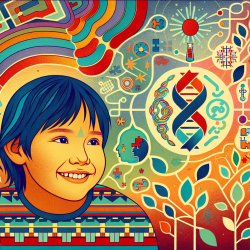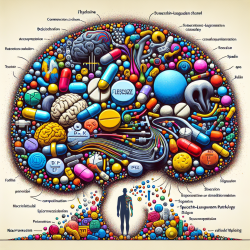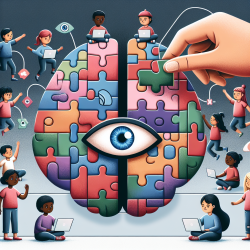As a speech-language pathologist dedicated to creating the best outcomes for children, understanding the unique challenges faced by Diné parents in accessing autism services is crucial. A recent qualitative study titled “Know Your Children, Who They Are, Their Weakness, and Their Strongest Point”: A Qualitative Study on Diné Parent Experiences Accessing Autism Services for Their Children, published in the International Journal of Environmental Research and Public Health, provides valuable insights that can help practitioners improve their skills and services.
Key Findings and Practical Applications
The study conducted in-depth interviews with 15 Diné parents and identified 12 overarching themes related to their experiences accessing autism diagnostic and treatment services. These themes highlight the dynamic interplay of sociocultural factors, healthcare system barriers, and physical environment challenges that affect service access. Here are some key findings and their practical applications:
1. Emotional and Cultural Challenges
- Parents often experience emotional stress and denial about their child’s autism.
- Cultural beliefs can influence the diagnostic process, with some parents turning to traditional healing practices.
Application: Practitioners should approach diagnostics with cultural humility, understanding and respecting the cultural beliefs of Diné families. Providing culturally sensitive information and support can help bridge the gap between traditional beliefs and modern diagnostic practices.
2. Long Wait Times and Geographic Barriers
- Long wait times for diagnostic services, sometimes extending to years, are common.
- Geographic isolation and the high cost of travel impede access to services.
Application: Implementing telehealth services and mobile clinics can mitigate these barriers. Practitioners can advocate for policy changes to improve rural infrastructure, making it easier for families to access necessary services.
3. Social Support and Advocacy
- Support from family and friends plays a crucial role in accessing treatment services.
- Parents often need to advocate persistently to obtain referrals and coordinate care.
Application: Establishing parent support groups and training programs can empower parents with the knowledge and skills to advocate effectively for their children. Encouraging a community-based approach can enhance social support networks.
4. Training and Awareness
- Limited clinician training and lack of cultural humility are significant barriers.
- Greater awareness and understanding of autism within Diné communities are needed.
Application: Continuous professional development programs focusing on autism and cultural competence are essential. Creating and distributing tailored informational resources for Diné families can raise awareness and improve early diagnosis and intervention.
Recommendations for Practitioners
Based on the study’s findings, here are some recommendations for practitioners working with Diné families:
- Adopt a culturally sensitive approach, respecting and integrating traditional beliefs where possible.
- Advocate for and utilize telehealth and mobile clinic services to overcome geographic barriers.
- Establish and participate in community-based support groups and training programs for parents.
- Engage in continuous learning about autism and cultural competence to better serve diverse populations.
To read the original research paper, please follow this link: “Know Your Children, Who They Are, Their Weakness, and Their Strongest Point”: A Qualitative Study on Diné Parent Experiences Accessing Autism Services for Their Children.










